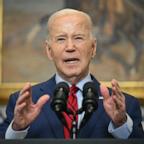Breast Cancer Myths, Squashed!
Dr. Tim puts an end to some breast cancer myths once and for all.
Oct. 4, 2007 — -- ABC News has gathered 65 doctors from the leading hospitals and research centers in the country to offer users over 350 video answers to your breast cancer questions -- the best "second opinion" information available online. ABC News covers what you need to know about screening and diagnosis, risk and prevention, treatment and living with cancer.
The site includes access to ABC's vast reporting on the latest developments in the fight against breast cancer and a comprehensive list of links to the best hospitals and research centers to provide users even more access to cutting-edge information.
One of the main motivations for creating this Web site is that there are so many myths about breast cancer and women need straight answers.
Dr. Tim busts a handful of breast cancer myths:
Q: Does deodorant increase a woman's risk of breast cancer?
Dr. Tim: The answer, of course, is no.
Q: Do fertility drugs increase a woman's risk of breast cancer?
Dr. Tim: The answer is, again, there's no evidence that suggests that's the case.
Q: Does breast size affect your risk for breast cancer?
Dr. Tim: There's no evidence that breast size affects your risk per se, but we do know that in general, obesity increases risk, and dense breasts are at great risk for cancer.
Additionally, there is no evidence that having a breast enlargement, with either silicone or saline implants, increases the risk of breast cancer. Women with breast enlargements must still have regular mammogram screenings.
Q: Does a high fat diet increase risk?
Dr. Tim: No, but increased calories may raise risk. Some studies show there is a connection, but others suggest that an increase of calories may increase the risk, so the jury is still out on that one.
Q: Does not having a family history of breast cancer mean you're not at risk?
Dr. Tim: Absolutely not! As in Robin Roberts' case, most women diagnosed with breast cancer do not have a family history of the disease. Every woman, every person, with breast tissue is at risk. However, if you have a family history, you must be more vigilant in getting screenings for the disease.
To visit the entire ABC News OnCall + Breast Cancer Center click here.




